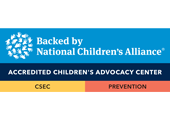Parents + Caregivers
Have the Conversation
There’s no perfect time or age to speak with your children about body safety. Instead, it should be part of regular conversation from their early years through their teens. We talk with our children about so many important safety topics, including fire, water, street and car safety. Let body safety be another topic you introduce.
Watch on YouTube – SPANISH PORTUGUESE
Tips for speaking with your child about body safety
Show that you’re available to answer questions as they grow by creating an atmosphere of trust.
What is body safety?
Body safety is calling body parts by their correct names.
A head is a head, shoulders are shoulders, knees are knees, toes are toes, a vagina is a vagina, and a penis is a penis. When we add new words, we make it confusing for children, and if something happened, it’s better for children to be able to use the correct terms for their (and other people’s) bodies.
When is the right time to talk to my child?
There is no “right time.” Use every day experiences to teach your children about body safety.
The conversations don’t need to be awkward. Some examples are when you help your child get dressed after swimming, or after taking a bath. Teaching body safety is saying, “the parts of your body covered by your bathing suit are private. No one should touch you there or ask to touch you there. And no one should ask you to touch their private parts or look at them. I am helping you get dressed, because I am your parent, and someday you will be able to do this by yourself.”
How often should I talk with my child?
Repeat the conversation often.
Most children will accept the conversation about private parts, just as any other lesson you teach. These lessons should be repeated often to make them accessible and comfortable.
Is this sex education?
No.
It’s a conversation about safety that allows you and your children to talk about subject matter that may have been uncomfortable for you to have with your parent or guardian. It’s not a conversation about the birds and bees. There is no “appropriate” age to start talking about this. The right age is now.
How do I start the conversation?
With each question, think of what is important to you as a parent to communicate. These prompts allow you to practice conversations of safety and create an atmosphere of trust:
- “Have you had a time where you didn’t feel safe?”
- “Who are three adults, besides (mom/dad/family) you trust?”
- “What parts of your body are private? Has anyone asked to see or touch those parts of your body?”
- “Has anyone ever asked you to touch or look at any parts of their body?
- “Is there a place that you don’t like to go, because it makes you feel uncomfortable?”
- “Has anyone or anything made you feel upset recently?”
- “Has anyone ever told you to keep a secret?”
- “Has anyone ever told you to keep a secret from me (as a parent)?”
Sometimes it is easier if you can read a book with your child to facilitate the conversation. View our suggested reading list here.
Our interactive Kids page allows you and your child to explore questions and answers together.
To learn more about how to protect your child, visit here.







